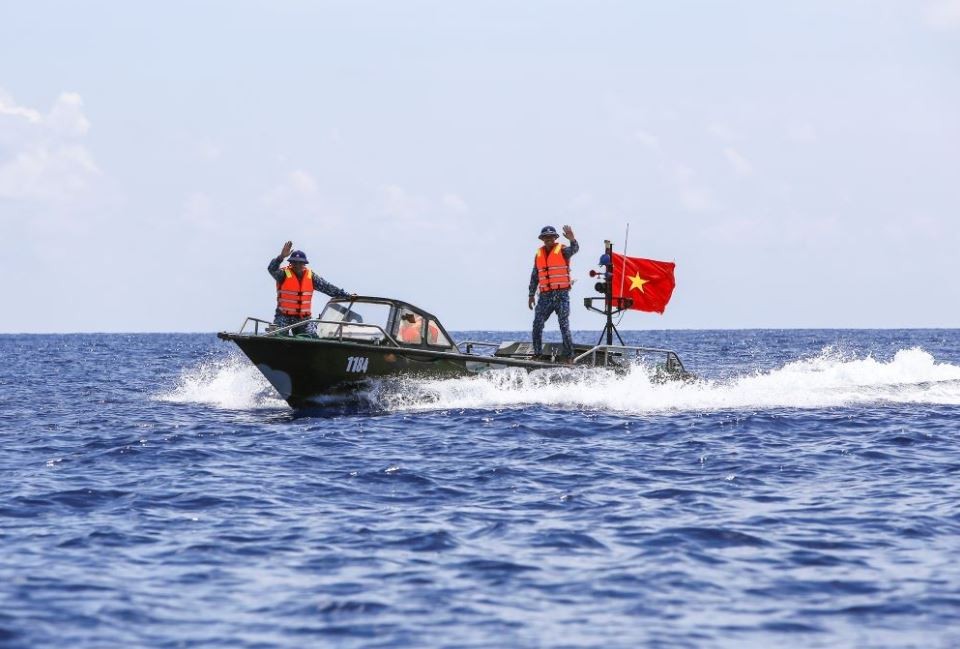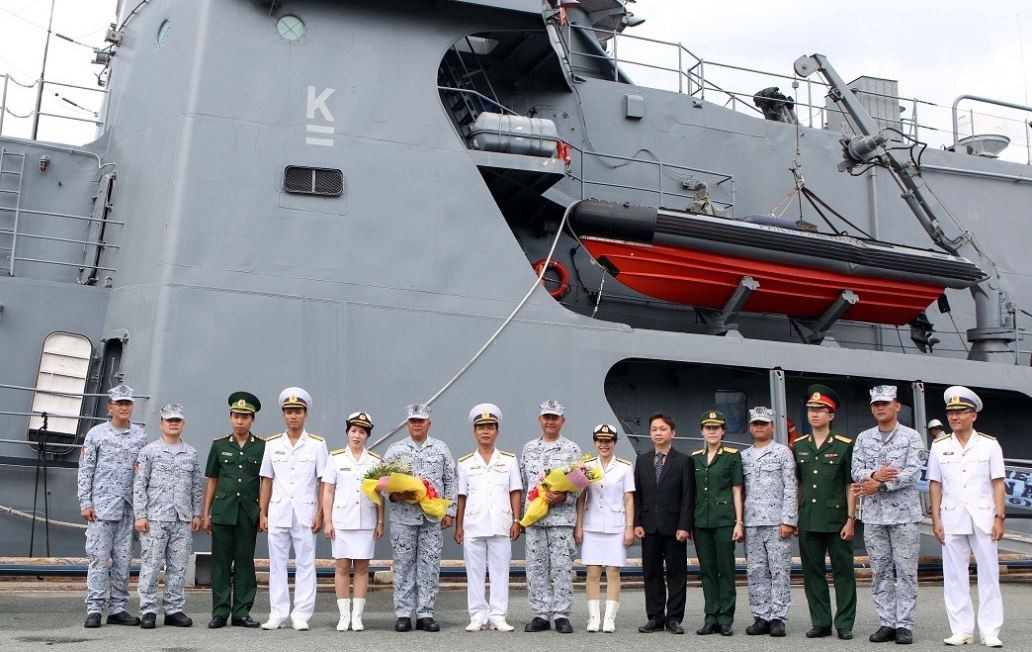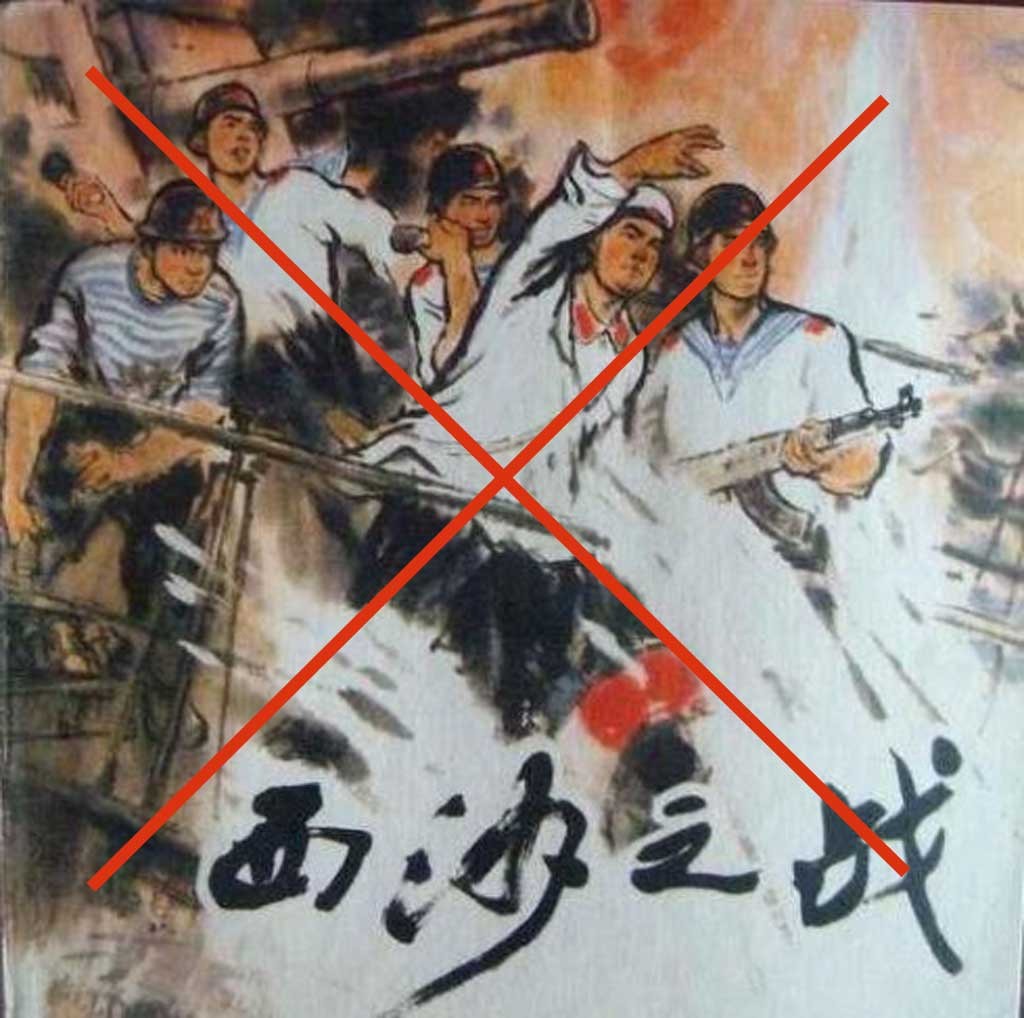New Chinese Maritime Law Further Encroaches on Countries' Sovereignty
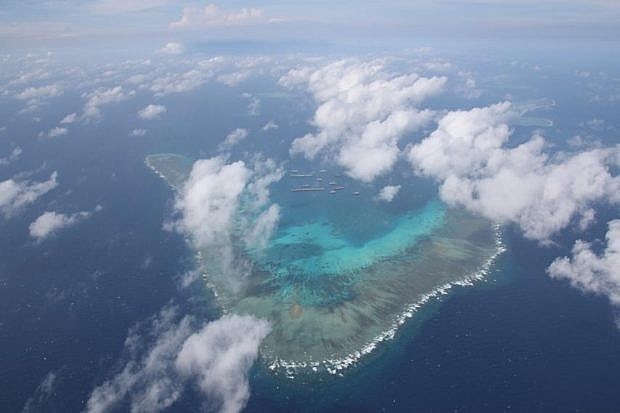 |
| China's revised Maritime Traffic Safety Law could escalate tensions if implemented in the South China Sea. |
China: Up to Its Old Tricks
Immediately, international media have pointed out the illegality of the so-called Newly Revised Maritime Traffic Safety Law. The law requires five types of ships entering China's territorial waters to declare relevant information. Otherwise, the authorities will apply Chinese laws, rules and regulations to handle.
The law stipulates that oil and gas tankers with high frequency of operation and ships that "may endanger the safety of China's navigation" are subject to regulation. Deputy Director of the Institute of South China Sea Studies (China) Kang Lin said the rule also applies to civilian ships used for military purposes.
The rule would be less objectionable if applied only within the 12-nautical-mile territorial sea of the Chinese coast. But the “ambiguous” law does not explain “the extent of the territorial sea.” Chinese military commentator Song Zhongping said the rule could apply to the East China Sea, the South China Sea, islands and rocks claimed by Beijing. It means the seas and islands within the China's self-drawn "nine-dash line".
Thus, depending on the subjective feelings of law enforcement, any foreign ship can become the subject of sanctions, even if it is operating normally in the waters outside China's territorial sea.
China's Administration of Maritime Safety and Communications said the regulation was in line with the 1982 United Nations Convention on the Law of the Sea (UNCLOS). But international experts confirmed that the regulation on the group of ships were affected and the rights of the coastal state, and the Law of China is completely contrary to UNCLOS 1982.
Shi Enhong, professor of international relations at Renmin University of China, predicts that “any country that has sovereignty disputes with China in the East and South China Seas, as well as Western countries such as the US and UK… will definitely not accept the new rule.”
A Breakdown of Maritime Safety Administration's New Law
Firstly, behind the regulation of "territorial waters" is the intention to affirm the sovereignty of the Bien Dong Sea along the "nine-dash line" and the sovereignty of the Hoang Sa and Truong Sa archipelagoes of Vietnam. Secondly, it creates a basis for coast guard ships and maritime militia ships to be present in the seas to "enforce the law" of China. Thirdly, it is a reaction test, "want to make" countries to get used to China's "law of the sea". Finally, along with other activities, the law lets China exercise supreme control of the South China Sea.
International media have described China's regulations as deliberately "ambiguous". The more ambiguous, the easier it is to justify and apply subjectively. That is, China gives the right to act freely, bringing its national law to override the international law.
The new regulation, similar to China's announcement of an "Air Defense Identification Zone" (ADIZ) over the East China Sea, may not be immediately applicable in practice. But it is a "time bomb", which can explode at any time Beijing wants, increasing the risk of disputes and collisions at sea.
The Danger of the System
Some people still hope for the justice to prevail, like Foreign Minister Wang Yi said at the East Asian Foreign Ministers Meeting in August 2021; "Respect for historical facts, international law, consensus to solve problems of the South China Sea basing on peace, respecting regional countries, avoiding outside interference."
But the actual action is not like that.
The chain of events reveals another truth. On August 7, 2020, China issued a technical rule for inspecting ships in domestic routes. Accordingly, the maritime area from Hainan to it-called Xisha (Hoang Sa of Vietnam) is "near the coast" (coastal), the sea area is "inland", subject to the "regulations on management of coastal areas" of the Law on coastal areas of China.
On January 22, 2021, China enacted the Law of the Sea, which allows law enforcement to "use all necessary measures", including the use of weapons against foreign ships, in waters Beijing claims sovereignty.
Then came the revised Maritime Traffic Safety Law announced at the end of August 2021. About every 6 to 8 months, China gives out a "slice of salami". Each "slice" introduces a number of new regulations, new definitions. The sum of the "salami slices" will gradually create a Chinese "Code" in the South China Sea.
By such doing, Beijing wants to turn undisputed seas and islands into disputed areas, under Chinese control.
In 2012, China blocked and took control of Scarborough Shoal. Within 5 years, from 2014, China has rehabilitated the rocks in the Spratly archipelago into artificial islands, with underground structures, piers, and runways to allow heavy military transport aircraft to take off and land (January 6). In 2021, one such plane landed on Fiery Cross Reef).
Along with that is the regular presence of many coast guard ships, maritime militia ships and a series of exercises in the East Sea. China has changed the status quo, creating an advantage in the South China Sea. There are islands, there are many ships, there are forces, now it is time to enact laws. Enough tools to realize the goal of controlling the East Sea. That is the danger of the system.
Is Silence Really Golden?
To prevent a dangerous system, you must fight each "slice". Regulations contrary to UNCLOS 1982 must be considered as a sovereignty claim without a legal basis, as dangerous as the placement of oil rigs in the waters of other countries.
International scholars predict that countries will not accept unjustified regulations. Vietnamese Foreign Ministry spokeswoman Le Thi Thu Hang stated: "Countries need to strictly comply with the treaties to which they are members, especially UNCLOS 1982 - the legal framework for all activities at sea when promulgating domestic law documents related to the sea”.
That spirit is consistent with the views of many other countries. Immediately, US Department of Defense spokesman John Supple affirmed that it was a "serious threat to the freedom of the seas", the rights and interests of the countries bordering the South China Sea. We have joined our partners and allies to fight illegal maritime claims...We will continue to do so," State Department spokesman Ned Price said.
However, some countries, because of their own calculations, because of ties or thinking "for mad words, deaf ears", can avoid, or accept the declaration at China's request. Silence means consent. Accepting information declaration, invisibly accepting China's "declared sovereignty". Such thinking creates the ground for illegal actions to grow.
Countries inside and outside the region need higher consensus, stronger and more continuous opposition, and more responsible action. Only then can there be enough pressure to prevent such behavior from happening again. It is not choosing sides, engaging in tension, but "choosing international law", for security and safety of navigation and aviation in the South China Sea, for peace, stability, cooperation and development of the area.
The Price of Sovereignty is Not Cheap
The media use the phrases "ambiguous", "illegal law-making", "unruly", "wrong" and other terms to talk about China's new Law. International scholars commented that the wording in the Law must be clear and specific. The complication is deliberately planting other intentions behind the words.
On August 10, 2021, a meeting of the United Nations Security Council issued a joint statement, referring to UNCLOS 1982 as the legal framework for all activities in the South China Sea, including combating illegal activities. , ensuring freedom of navigation, despite the harsh reaction of the Chinese representatives.
Reuters on September 3 reported that the Pacific island nation of Micronesia used US funds to build an undersea cable line. Previously, the archipelago had refused to award a contract to a Chinese company. Clearly, the world is increasingly wary of China's dominance in the Bien Dong Sea. The price to pay is not small.
The article reflects the views of the author.
Vu Dang Minh
 | US Vice Admiral: China’s New Maritime Requirements Build Foundations for Instability China’s new reporting requirements for ships on innocent passage to the South China Sea (Bien Dong Sea) begin to build foundations for instability and potential ... |
 | Vietnam Resolutely Protects Sovereignty over Archipelagoes Vietnam resolutely and persistently takes measures in line with international law to exercise and protect its sovereignty over Hoang Sa (Paracel) and Truong Sa (Spratly) ... |
 | US Vice President Kamala Harris Says Beijing continues to 'coerce' in South China Sea US Vice President Kamala Harris accused China of coercion and intimidation in the East Sea also called Bien Dong Sea (South China Sea), damaging order ... |
In topics
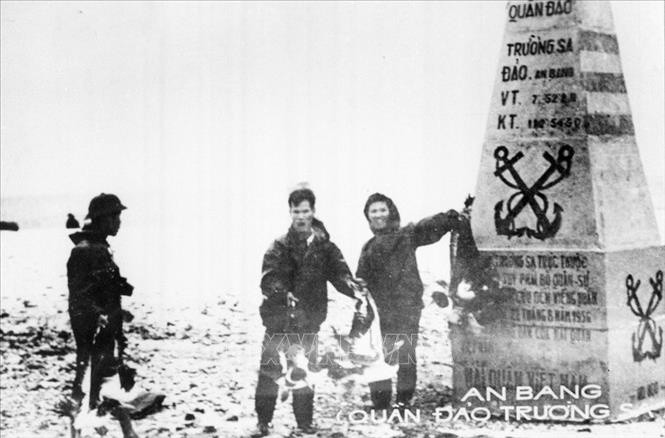 Focus
Focus
Truong Sa (Spratly) 1988 - Dossier on Historical Incident: Diplomacy and Reality
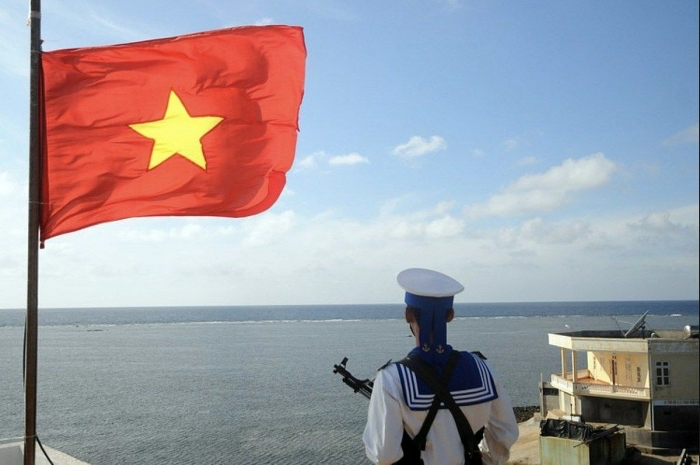 Seas and islands
Seas and islands
Vietnam and Philippines Share Common Desire for Peace in Bien Dong Sea
Recommended
 Seas and islands
Seas and islands
RoK Navy Ship Pays Friendly Visit to Da Nang City
 Seas and islands
Seas and islands
Naval Region 5 Promotes Reading Culture, Fosters Patriotism
 Seas and islands
Seas and islands
Coast Guard Region 2 Command Hosts Philippine Coast Counterpart
 Seas and islands
Seas and islands
Vietnam - Thailand Navy: Coordination to Well Address Problems at Sea
Popular article
 Seas and islands
Seas and islands
Honoring the Fallen: Incense Offering for the 37th Anniversary of Gac Ma
 Seas and islands
Seas and islands
Vietnam Coast Guard Expands International Cooperation for Maritime Security
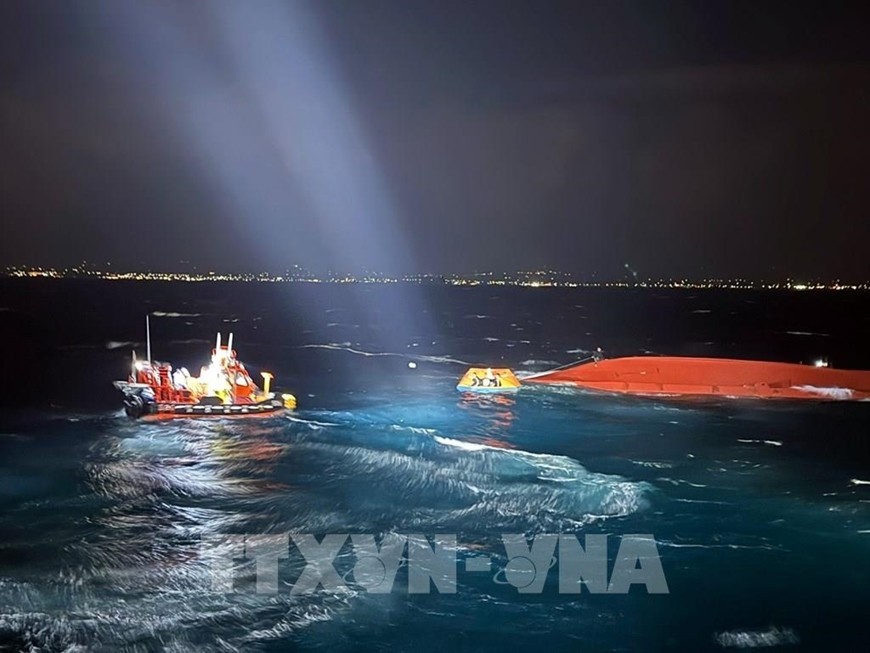 Seas and islands
Seas and islands
Three Vietnamese Fishermen Saved Off Jeju Coast
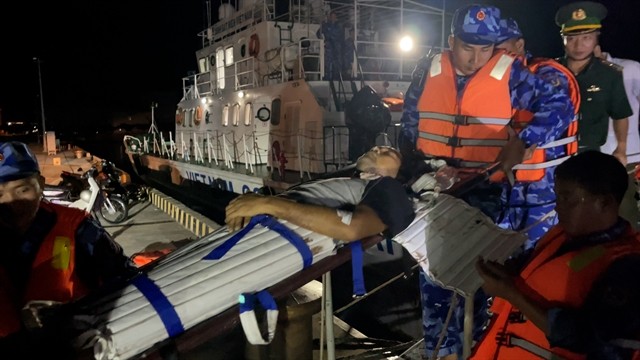 Seas and islands
Seas and islands





